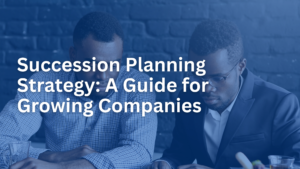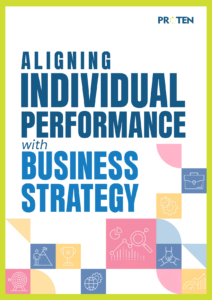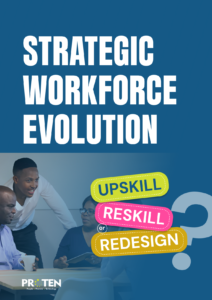Finding the right C-level executive can make or break your company’s future. Unfortunately, hiring the wrong leader comes with a hefty price tag.
Studies show that a poor executive hire can cost up to 2.5 times their annual salary. In Nigeria, these stakes become even higher.
Despite the critical importance of senior leadership, many Nigerian companies continue to make preventable mistakes during their executive recruitment process.
These errors range from relying too heavily on personal connections to overlooking how well candidates fit with company culture. The result? Decreased performance, disrupted teams, and stalled growth.
Today, we’ll explore seven common mistakes companies make when hiring C-level executives in Nigeria.

7 Common Mistakes Companies Make When Hiring C-Level Executives in Nigeria
1. Overreliance on Personal Networks for Executive Search
Most companies start their executive search by looking within their existing networks. While personal recommendations can be valuable, this approach severely limits your talent pool.
You end up considering only familiar faces while missing out on innovative leaders who could bring fresh perspectives to your organization.
This narrow search method also reduces diversity at the leadership level, which can stifle creativity and limit your company’s ability to adapt to market changes. In today’s competitive landscape, expanding your search beyond immediate connections becomes crucial for finding the best possible candidates.
Instead of relying solely on personal networks, consider using professional executive search platforms. Proten International’s job board, for example, connects you with a broader pool of pre-vetted, highly qualified executive talent.
This approach helps you discover leaders who can drive meaningful growth and transformation.
2. Not Defining the Role Beyond the Job Title
A lot of companies make hiring decisions based on impressive job titles without clearly outlining what the role involves. This approach creates confusion and sets both the company and the new executive up for failure.
Vague expectations inevitably lead to misaligned priorities and disappointing performance.
A comprehensive job description should go far beyond listing basic duties. It needs to include specific, measurable KPIs and clear success benchmarks.
This level of detail ensures that both your company and potential candidates share the same understanding of what success looks like from day one.
When you define roles clearly, you create a foundation for accountability and long-term leadership success.
This clarity also helps candidates self-assess their fit for the position, leading to better hiring decisions overall.
3. Ignoring Cultural Alignment and Leadership Style
Technical qualifications alone don’t guarantee executive success, especially in Nigerian workplaces where relationships and cultural dynamics play significant roles.
An executive with outstanding skills but conflicting values can quickly disrupt team harmony and halt organizational progress.
Cultural fit ensures that leaders genuinely connect with your organization’s vision, people, and working methods. When leadership styles clash with company culture, you often see increased employee turnover and declining morale throughout the organization.
Therefore, evaluating both competence and cultural compatibility becomes essential for sustainable executive success.
Take time to assess how potential leaders align with your company’s values and whether their management style complements your existing team dynamics.
4. Rushing the Executive Recruitment Process
Pressure to fill vacant executive positions quickly often leads to expensive hiring mistakes.
When companies focus on speed over quality, they tend to overlook important warning signs and make decisions that seem good in the short term but prove costly later.
A well-structured executive hiring process allows time for thorough background checks, comprehensive assessments, and proper cultural fit evaluations. This methodical approach protects your organization from the long-term consequences of hasty decisions.
Taking the necessary time to recruit strategically always pays off in the end. Patient, thoughtful hiring leads to better performance, increased stability, and sustainable growth for your organization.
5. Neglecting Succession Planning
If your organization only thinks about leadership replacement when a crisis hits, then you’re doing it wrong.
This reactive approach forces companies to make rushed, high-risk hiring decisions under pressure. Unfortunately, these emergency hires rarely turn out well.
Proactive succession planning creates a pipeline of capable leaders who are ready to step in when needed. In Nigeria’s dynamic business environment, having this preparation becomes even more critical for maintaining business continuity and achieving long-term strategic goals.
Strong succession strategies transform potentially disruptive leadership transitions into smooth, opportunity-filled moments.
By planning ahead, you ensure that your organization remains stable and continues growing regardless of unexpected leadership changes.
6. Undervaluing Soft Skills in Executive Assessment
Focusing heavily on technical expertise while overlooking the soft skills that determine leadership success.
Qualities like emotional intelligence, adaptability, and conflict resolution skills often matter more than technical knowledge when it comes to inspiring teams and navigating complex challenges.
These soft skills become particularly important when managing diverse teams in Nigeria’s multicultural business environment. Leaders need to connect with people from different backgrounds and adapt their communication styles accordingly.
To properly evaluate these qualities, incorporate behavioral interviews, leadership simulations, and 360-degree feedback into your assessment process.
This balanced approach to evaluating both hard and soft skills helps you select leaders who can perform well while effectively guiding their teams.
7. Offering Uncompetitive Compensation & Poor Onboarding
Top-tier Nigerian executives regularly decline offers that don’t reflect their true market value.
Uncompetitive compensation packages send a clear message that your organization doesn’t value strong leadership, which naturally repels high-caliber candidates.
However, competitive pay alone won’t guarantee success. Even exceptional hires can fail without proper onboarding processes that support their integration into your organization.
New executives need structured support to understand company culture, build key relationships, and align their efforts with organizational goals.
Investing in both competitive compensation and comprehensive onboarding significantly improves retention rates and performance outcomes.
This dual investment demonstrates your commitment to leadership excellence and sets new executives up for long-term success.
Final thoughts…
Hiring C-level executives goes far beyond simply filling vacant positions. Each executive hire represents a strategic investment that will shape your organization’s future direction and success.
By focusing on proactive planning, structured assessment processes, and thorough cultural alignment evaluations, you can avoid costly mistakes and secure leaders who truly align with your vision. Remember, the right executive doesn’t just manage operations. They inspire teams, drive innovation, and create sustainable growth.














